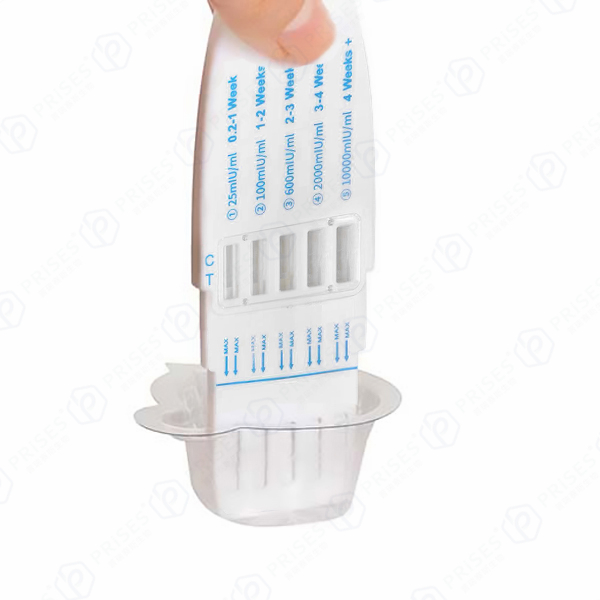Novemba . 25, 2024 20:42 Back to list
buy hcv rapid test kit supplier
The Growing Demand for HCV Rapid Test Kits A Look at Suppliers
In recent years, the global health landscape has increasingly focused on the importance of early detection and treatment of viral infections. Among these, Hepatitis C virus (HCV) poses a significant public health challenge. The World Health Organization (WHO) estimates that around 71 million people worldwide are living with chronic HCV infection, which can lead to severe liver disease if left untreated. In response to this pressing issue, the demand for Hepatitis C rapid test kits has surged, prompting a growing number of suppliers to enter the market.
Understanding HCV Rapid Test Kits
HCV rapid test kits are essential diagnostic tools that enable healthcare providers to quickly and accurately detect the presence of antibodies to the Hepatitis C virus in a person's blood. These tests offer the advantage of providing results within minutes, making them invaluable in various settings, including clinics, hospitals, and even at home. Rapid testing has become increasingly important in the fight against HCV, as early diagnosis leads to timely intervention and treatment, ultimately reducing the risk of complications and transmission.
The Role of Suppliers
As the demand for HCV rapid test kits continues to rise, suppliers play a critical role in ensuring the availability and accessibility of these crucial diagnostic tools. Suppliers vary widely, from large multinational corporations to smaller, specialized manufacturers. It is crucial for healthcare professionals and institutions to choose suppliers who offer high-quality, reliable products. Factors such as regulatory approvals, clinical performance data, and customer support should influence the selection process.
Quality Assurance and Regulatory Compliance
When sourcing HCV rapid test kits, buyers must ensure that the suppliers they choose adhere to international quality standards and regulatory requirements. Most reputable suppliers comply with certifications such as ISO 13485, which demonstrates their commitment to quality management systems specifically for medical devices. Additionally, regulatory approval from agencies like the U.S. Food and Drug Administration (FDA) or the European Medicines Agency (EMA) is vital to ensure that the tests are safe and effective for use.
buy hcv rapid test kit supplier

Market Trends and Innovations
The market for HCV rapid test kits is experiencing notable trends and innovations. For instance, many suppliers are investing in research and development to enhance the sensitivity and specificity of their test kits. Newer models may incorporate advanced technologies such as lateral flow assays or microfluidics, which can provide even quicker and more accurate results. Furthermore, the adoption of digital health technologies, including mobile health applications, is facilitating the integration of rapid testing into broader healthcare services.
Cost Considerations
While the effectiveness of HCV rapid test kits is paramount, cost remains a critical factor for many healthcare providers, especially in low-resource settings. Suppliers often offer a range of pricing options, and bulk purchasing can provide significant discounts. In some cases, suppliers may also provide training and support to healthcare personnel, ensuring proper use of the kits, which can further enhance their cost-effectiveness in clinical settings.
The Future of HCV Testing
The future of HCV rapid testing looks promising, driven by increased awareness of the disease and the importance of early detection. Government initiatives aimed at hepatitis elimination by 2030 are also bolstering the market for rapid test kits. Moreover, partnerships between public health organizations and suppliers can enhance the distribution of these testing kits in high-prevalence areas, ultimately improving health outcomes.
In conclusion, the demand for HCV rapid test kits continues to grow, and choosing the right supplier is crucial for healthcare providers. By focusing on quality assurance, innovation, and cost considerations, stakeholders can contribute to the effective management of Hepatitis C and promote better health outcomes for affected populations. As the landscape of HCV testing evolves, suppliers play a pivotal role in shaping the future of hepatitis care and treatment.
-
Dengue NS1 Rapid Diagnostic Test Kit
NewsMar.07,2025
-
Dengue NS1 Rapid Diagnostic Test Kit
NewsMar.07,2025
-
Dengue NS1 Rapid Diagnostic Test Kit
NewsMar.07,2025
-
Transferrin Rapid Test Cassette Tumor Marker TF Card
NewsMar.07,2025
-
Malaria Pf Pan Rapid Diagnostic Test Kit
NewsMar.07,2025
-
malaria pf / pan ag rapid test
NewsMar.07,2025

